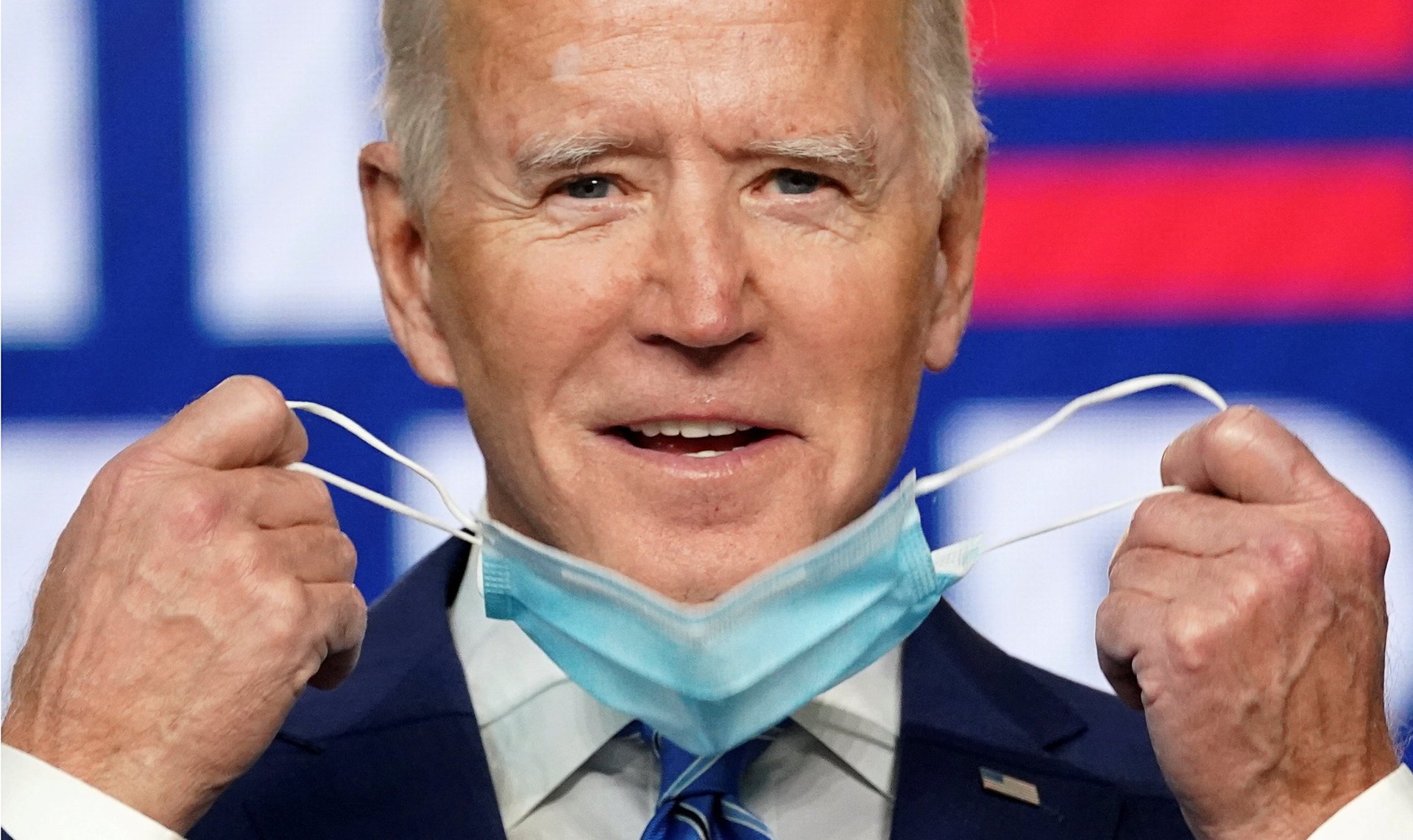How a national mask mandate would work
When Joe Biden is sworn in as US president in January, he’ll have his work cut out for him to keep the coronavirus at bay. Just this week, in the midst of election chaos, the US topped 120,000 cases in one day, a grim new record.


When Joe Biden is sworn in as US president in January, he’ll have his work cut out for him to keep the coronavirus at bay. Just this week, in the midst of election chaos, the US topped 120,000 cases in one day, a grim new record.
But the experts have been clear: A national mask mandate is a great way to get the pandemic under control.
Dozens of countries, including India and France, have national mask mandates that have generally helped reduce the number of Covid-19 cases. In the US, it’s been up to states to make their own policies around masks.
Experts agree that a national mandate would be more effective than the country’s current piecemeal strategy. In October, the Centers for Disease Control and Prevention (CDC) issued a “strong recommendation” for mask use on transportation such as planes, trains, and ride-share vehicles. Widespread use of masks could save 130,000 lives by March, according to a recent study in Nature Medicine. Anthony Fauci, the director of the National Institute of Allergy and Infectious Diseases and the nation’s top infectious disease expert, endorsed the policy, too.
What exactly a mask mandate would require depends in part on how it’s declared. Biden has already said that he would issue an executive order requiring masks on his first day as president. But some have suggested that legal challenges might curtail its impact. He would have the most authority over federal spaces, which would include transportation hubs as the CDC suggested.
Even if Biden’s executive order were challenged legally, a Democratic majority in the House of Representatives (at the time of writing, the Senate’s party majority has not been called) could offer other avenues for implementing such a mandate. A law passed by the US Congress could rely on its control over federal funds to compel governors to put state-level mask mandates in place. Such a law would face fewer legal challenges (pdf), though it would be tougher to put in place.
Biden could also deploy soft power to promote mandates at the state level. “First, I’ll go to every governor and urge them to mandate mask-wearing in their states,” he said on Oct. 23. “And if they refuse, I’ll go to the mayors and county executives and get local masking requirements in place nationwide.”
Under Biden, the US stands a better chance of getting the coronavirus under control. Axios has reported that the president-elect will announce a coronavirus task force on Monday (Nov. 9), just two days after the outcome of the election was announced. After the loss of hundreds of thousands of American lives, it’s better late than never.
Read more of Quartz’s election coverage
- American democracy bent but it didn’t break
- What Biden’s win changes for America, China, and the environment
- The dystopian, Trumpian future narrowly avoided by America and the planet
- The damage Trump could do as a lame duck president
- And more